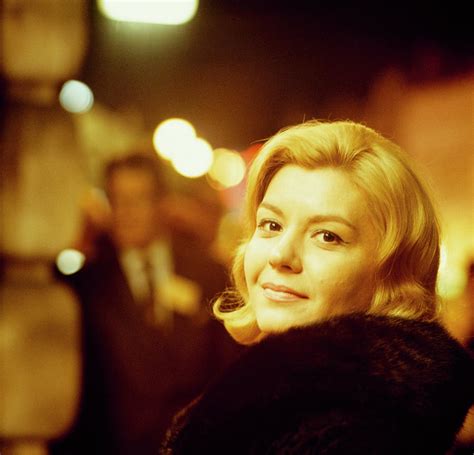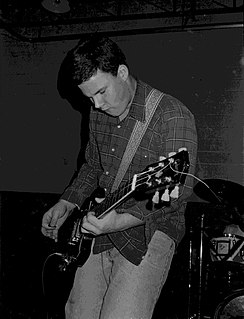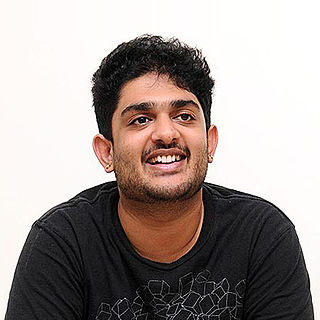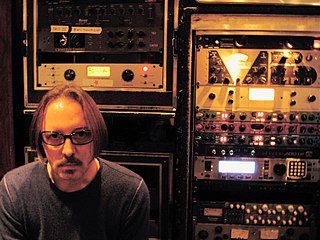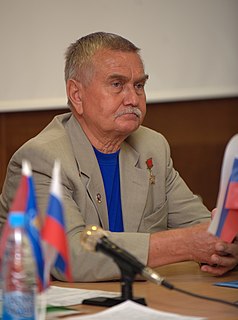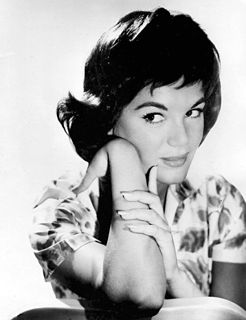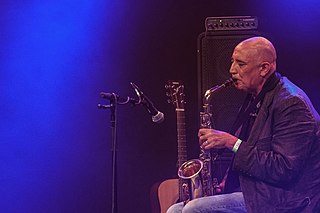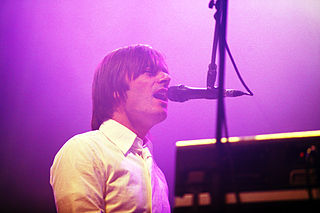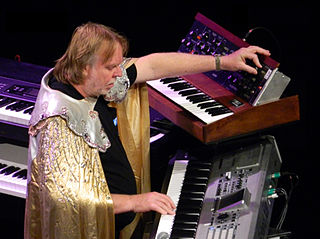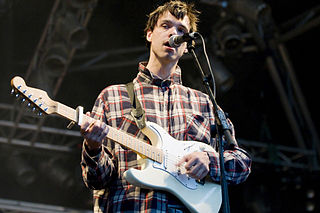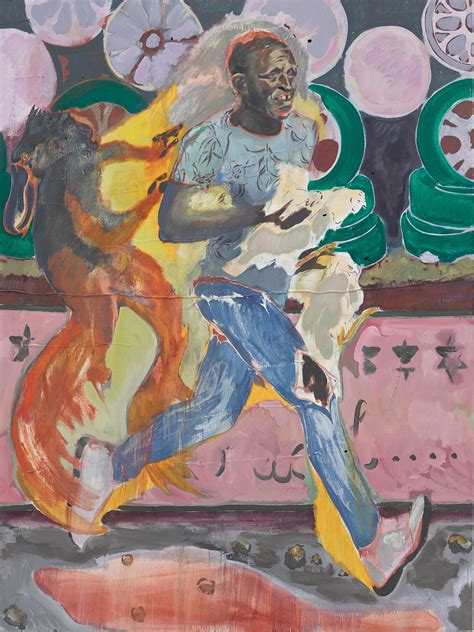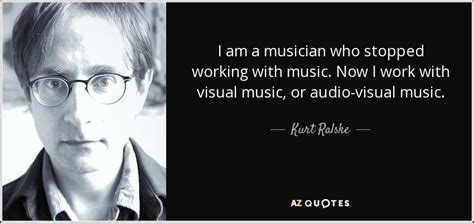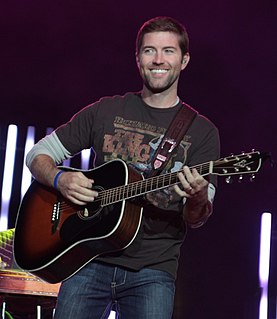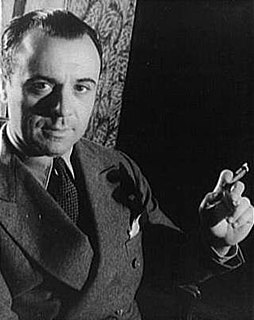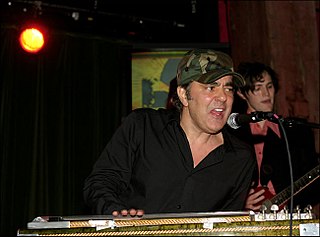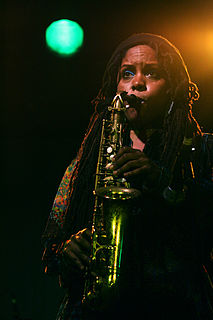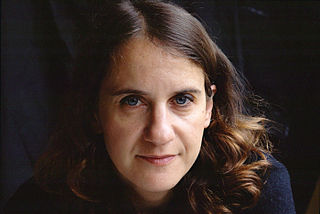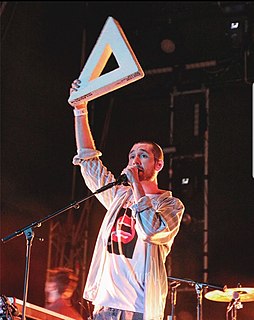Top 228 Recordings Quotes & Sayings - Page 4
Explore popular Recordings quotes.
Last updated on December 4, 2024.
I was devastated. I'm still devastated to this day. When talent like that disappears in a flash, you can't believe it. You deny it. Max Roach, who, of course, played with him on all those EmArcy recordings, held a concert in Baltimore for Clifford long after Clifford died. Max was still disbelieving so many years later. The concert was supposed to bring closure. But Max was so outrageously emotional that day. He had quite a few eruptions and was very emotional about what had happened so many years earlier. Like everyone, he remained disbelieving.
I trust microphones, speakers and recordings less and less, and no longer buy into the idea that I can recreate at home, or in my earphones, the experience of hearing live acoustic instruments. The orchestra is already a set of speakers that react differently to each player, each room and each concert - it's that high level of uncertainly and unrepeatability that I like. The music is just soaked into the walls of a room straight from the instruments - and it's a one-off deal. The alternative - left speaker, right speaker - is kind of a compromise.
Chance in music doesn't have to involve the I Ching or rolling dice or throwing yarrow stalks. It can involve an out-of-tune guitar, or other impossible-to-replicate moments of awkwardness - even more so than an awkward, out-of-tune live performance, because there's something incredible about the way that an out-of-tune guitar becomes part of the song on a record. I won't be precious and say it's part of the composition - that's nonsensica l - but chance occurrences are so crucial to what's distinctive. It's the fingerprints all over so many of these recordings.
Artists should re-emphasize performance and de-emphasize recording. You always make more money if you have a healthy performing life than you will if you have even a moderately healthy recording life. Don't make recording the most important thing you do. Make performing the most important thing you do, and then you can make recordings and sell them at your shows, because record labels aren't going to be around to help you get on the radio stations, and the radio stations probably aren't going to play you anyway.
Let there be music in the home. If you have teenagers who have their own recordings, you will be prone to describe the sound as something other than music. Let them occasionally hear something better. Expose them to it. It will speak for itself. More of appreciation will come than you may think. It may not be spoken, but it will be felt, and its influence will become increasingly manifest as the years pass.
I spent most of my 20s playing music. I was in a band and we worked really hard and did not get very far. I was really close to being this guy who used to be in this band who is still playing and trying to get some recordings together, but I got really lucky. That's never lost in me, that I went through Saturday Night Live.
It's funny, I don't really feel that nostalgic. I only recently started putting up some photos from some of the sessions I've done over the years and some of the Garbage sessions because my daughter, who's 10-years-old, when she was about 6 or 7 she was more curious about what I do. I have all these platinum records and stuff, they've all just been in boxes in storage for years but I started just digging through those things because I sort of want her to be aware of my past. I never really put the old recordings on and listen to them and go, "Oh that sounds great."
I never considered myself an Americana artist, but I'm a huge fan of old-time music from the States, the recordings that were made in the '20s and '30s. Trying to chase down the exact stylistic trappings of that stuff always felt like a dead end. That spirit of directness and economy, but also the poetic pungency of the writing and almost ugly, or raw, performance - all that seemed like the real message. I've just tried to somehow stay true to that feeling.
We had various kinds of tape-recorded concerts and popular music. But by the end of the flight what we listened to most was Russian folk songs. We also had recordings of nature sounds: thunder, rain, the singing of birds. We switched them on most frequently of all, and we never grew tired of them. It was as if they returned us to Earth.
I like traditional music. I listen to a lot of it. There is no particular reason to present these recordings. I love what I do so I find ways to keep doing what I love. Music is certainly not all that interests me. I hear things my own way and I present them. Sound is inspiring and I can be quite obssessive with certain sounds.
We like the ambiance and atmosphere, and we felt really early that... I mean, of course, Air is an electronic band, but we are doing so many real recordings and the studio is so important for the sound. The acoustics create atmosphere and emotion. Also we want to be independent, we don't want to be obliged to go into a commercial studio and only stay one week because it's really expensive. We want to be able to give a chance to a song, and to spend a lot of time in the studio.
Being a classical musician I'm fascinated with how my colleagues, not just singers, but every musician finds ways to express something else or something new or the same ol', same ol' in classical music. I'm always in dialogue with other musicians at least orally, if I can't be with them and a lot of dead musicians as well. I've learned a lot from dead people on recordings.
I feel like there's just so much of everything that I don't know what people have heard and what they haven't heard. I think with the fact that there's the Internet and that people can share home-made recordings, I think a lot of the songs do get to be heard, even if it's not the best quality, or there's clinking glasses or it's just piano and voice, people can at least hear the song.
So the recordings were these immersive landscapes, and yet, unlike the performances that almost no one would see, I had a sense that these could live forever. I was just starting to get my head around the democratic aspect of art; I didn't want to make rarefied things that were either alienatingly obscure or elite and art-worldy, so a recording that anyone could buy was a great medium.
I can remember how I sang - a little more nasal-y back then. Listening to those old recordings is like seeing a photograph of yourself from 10 years ago. You're wearing what you thought looked cool at the time. You had your hair styled the particular way you thought looked cool. It's an accurate depiction of who you were and what you looked and sounded like at that point in your life. It doesn't necessarily mean that it aged in a way that it feels as cool or sounds as good to you, or says what you thought it said, 10 years later. That's just the nature of growing older.
Music making features real-time creation, real-time decisions and actions. It's basically improvisation, which is the stuff of everyday life. In the realm of discourse about music, improvisation is marginal, but in the realm of doing it, it's omnipresent. Strange distinction here: we're improvising all the time, but when we tend to talk about music, we tend to talk about objects that are fixed, like recordings, scores, pieces.
These days, I find it harder to listen to really trebly lo-fi recordings. At the same time, without the old limitations, these new technologies require self control. So much of the software seems to be about correcting imperfections - quantizing, Auto-tune - and, to me, those corrections can really drain the life out of a performance.
My feeling about young people who want to pursue a career is - the first thing is do your homework on where it all started. Go back and look at history. Look at why the shows you are loving today happened and the artists you are listening to happened. And do your homework on history. Whether it's musical movies, musical plays, Broadway musical recordings - do your homework! And then, that way you will have an understanding of why, now, certain movies, certain plays, certain musicals are making some sort of sense.
Some people who make music are instantly very savvy about how they can get their music to communicate in a larger way. For me, the music was always first, and I put a lot of time and effort and thought into making the recordings. But everything else around it, all the things that were necessary to have a career in pop music, I was completely ill equipped to handle.
My manager came up with the idea of taking a Pro Tool rig out on the road to record every night and I thought it was a great idea. I felt like it would be good to record over a certain period of time and then take the best performances of that collection of recordings. It appealed to me that it wasn't going to be from just one location.
I valued the experience of making the recordings, and I value the performances contained therein, and I value so much of what they can represent. I also think they're a terrific listening experience. Putting them out this way was a way of trying to maintain and nurture the relationship with the audience and also shine a light on the recent past, because we are so apt to be forgetful as human beings that there was such a thing as a recent past. These are some of the reasons for making this record.
We had some ups and downs, creatively, as the season went on, which is true of any show. If you compound that by the production that we go through, in terms of original songwriting and recordings, and all that is happening simultaneously, where we didn't do as good a job, as I hope we do this year, is the arcing of the storylines and the consistency of going in one direction with a character, and continuing in a really interesting way with that arc.
Memory is the great deceiver. Perhaps there are some individuals whose memories act like tape recordings, daily records of their lives complete in every detail, but I am not one of them. My memory is a patchwork of occurrences, of discontinuous events roughly sewn together: The parts I remember, I remember precisely, whilst other sections seemed to have vanished completely.
I like the idea of a kind of eternal music, but I didn't want it to be eternally repetitive, either. I wanted it to be eternally changing. So I developed two ideas in that way. 'Discreet Music' was like that, and 'Music for Airports.' What you hear on the recordings is a little part of one of those processes working itself out.
I'm a huge fan of voice memos. I put down many ideas there and sometimes I even use some of those audio files in my actual recordings. You get this really raw energy from voice memos that you can't get when you sit down in a studio with a microphone. There's this sense of immediacy, which I'm really drawn to.
I feel that classical music should be a more recognizable part of everyone’s entertainment. It has been my hope that through live concerts, motion pictures, recordings, international competitions, and interesting public forums, a larger group of people will learn to love classical music and attend live concert performances.
It’s time for a streaming service that is centred around and driven by the artist community directly. Artists are prolific beyond a new recording every two years. They perform, tour, record, and collaborate constantly. Uprise.fm will not only make these rare and unique recordings available, we will ensure that the artists are fairly compensated for this work.
You can hear a real shift. You listen to the late 80s recordings, you'll hear us engaging with the audience, dealing with the issues surrounding punk shows at the time. Back then, people thought you had to be a skinhead and beat the crap out of everybody when you went to a punk show. Come the early 90s, when you had this so-called grunge stuff and when videos became so dominant, you had this totally huge shift in the culture of shows.
The tax incentives are things the music business can emulate. If I own Yesterday by the Beatles and I go to a bank and try to borrow $10,000 and use that song as collateral, they wouldn't know what to do. They would run me out of the bank. Whereas if we get specialized people who know how to appraise the value of intellectual property like songs, catalogs and master recordings, they know how to put some type of value on it. They have this in Nashville and Los Angeles. New Orleans is just starting to get it.
The musical flags of the world should fly at half mast because truly one of the greatest guitarists in the world and king of the blues has died. I have cherished him and so has the rest of the world who knew him and loved him for his entire career. As we pain, we must celebrate that his music, his style of playing and singing will last forever, from the recordings that he has done and the influence that he has had and will have on guitarists all over this planet. Long live the spirit of B.B. King.
I think maybe the vehicle for me was 'Sam Cooke's Greatest Hits.' It has a song called, 'Touch the Hem of His Garment.' Do you know that song? I kind of got obsessed with that song and started exploring and getting more of his old recordings with the Soul Stirrers and really getting into that super, super deeply.
All we wanted to do was to make live records all available. For us, the idea is to make it all available and let people decide which ones they like better. It's not for us to decide. We don't care about that. What we're interested in is the idea that we made these recordings, and they're not doing anybody a damn bit of good sitting in a closet.
I can't remember who it was - maybe Brian Eno - but some important musician guy said he recorded ambient noise from a city street and after he listened to these field recordings for the millionth time, it was like, "Oh yeah, at 1:23, that's where the car horn comes in." So when you're doing stuff like this, and you've been working on it for a year, you're like, "Oh yeah man, that makes perfect sense!" And then you forget when you give it to people, they're bewildered.
The expectation is this low, gravelly voice for John, but I went through his early recordings and there were songs in there where the voice was so different, I wasn't even sure if it was him singing, ... So it was interesting to me that we would see him develop the Man in Black sound. I thought it was really important that his voice change as his persona slowly solidified. The music was really the doorway into the character.
Duke Ellington's career traces the entire history of jazz. The repertoire associated with him contains the most important elements in the music and provides concrete examples of some of the best ways to present the music in the widest variety of settings-radio, TV, recordings, movies, concert halls, festivals, solo, small ensemble, big band, symphony orchestra, opera, Broadway shows.... You name it, he did it!
I don't come from a film background. I haven't learned anything about films or film-making. But I have a thirst to know everything about my profession. I want to learn about cinematography, about editing, about music recordings, about post-production. So when people in the know talk, I willingly listen.
If I look at my own recordings, I think generally there is a focal point within the song and often it's the instrumental bridge or a guitar solo where we try to do something unexpected, something beautiful or weird, or beautiful because it is weird. And of course I fail half the time, but yes that is the goal, to create even a few seconds of bliss, or sadness. The electric guitar is a great instrument for doing this because it is capable of surprising you. There are so many different sounds available.
There are still many questions about how law enforcement responded to the shooting at the Pulse nightclub in Orlando.To get some answers, media organizations, including NPR, have asked for tapes of the 911 calls and other recordings. So far, authorities have not released that audio, only edited transcripts. Doing more, they say, would re-victimize the survivors.
